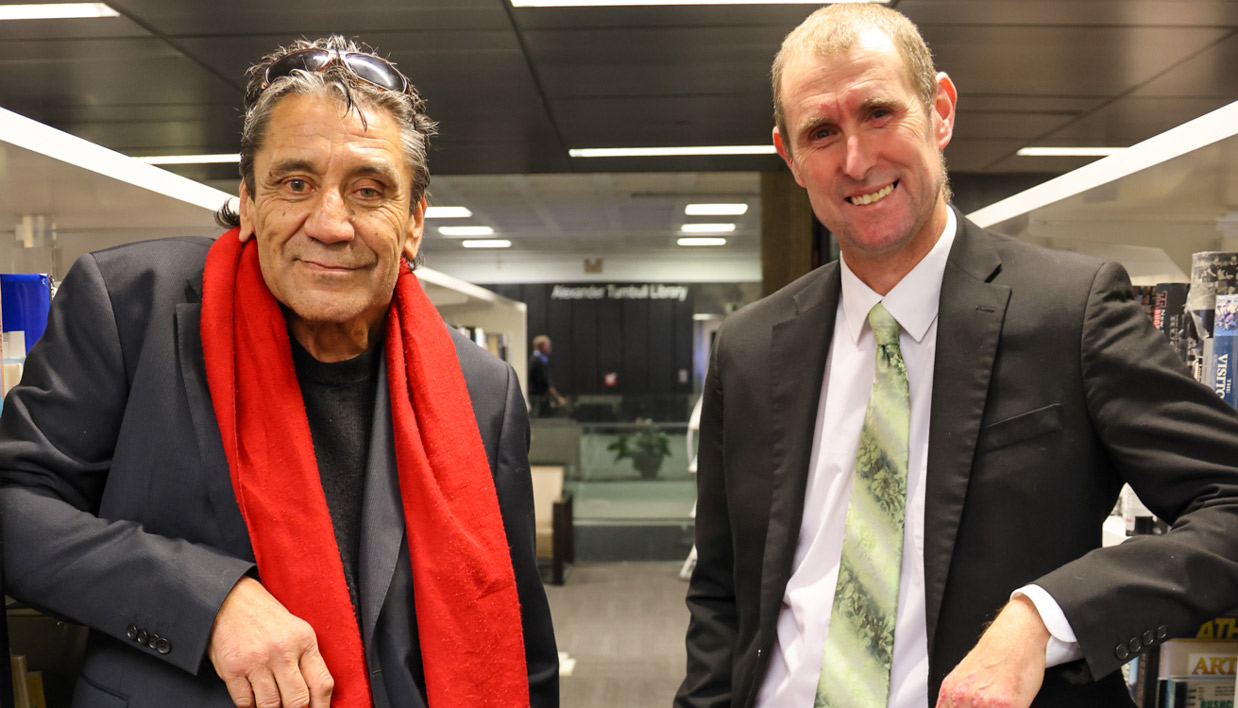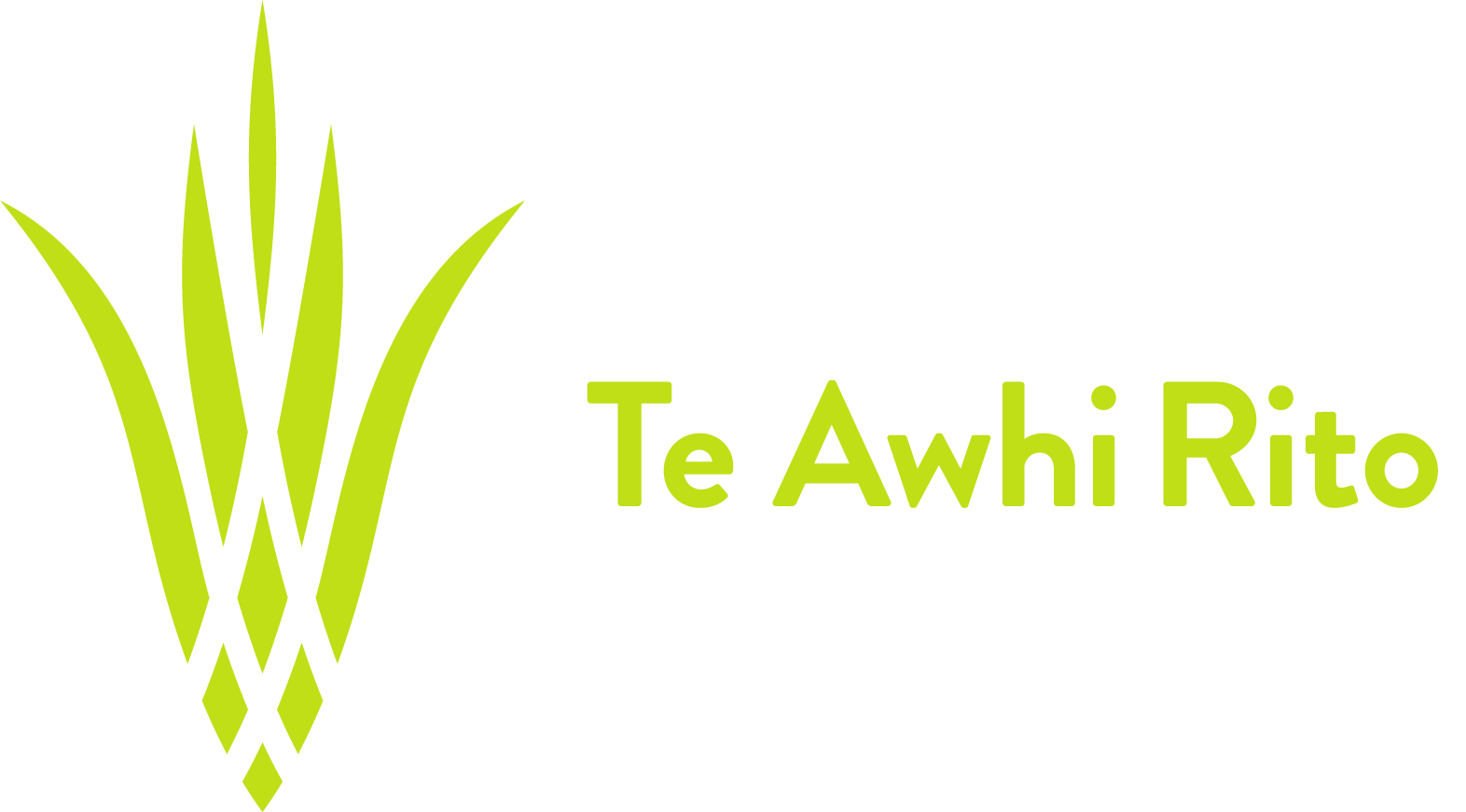Honouring Ben Brown and welcoming Alan Dingley
The National Library in Wellington held a special gathering to honour and acknowledge Ben Brown as he finishes his term as Te Awhi Rito Reading Ambassador and to welcome Alan Dingley as the next Te Awhi Rito.

Inaugural Te Awhi Rito New Zealand Reading Ambassador Ben Brown (left) with new Te Awhi Rito Alan Dingley (right).
Ben Brown honoured and Alan Dingley welcomed
The event began with a focus on Ben, particularly the impact he has had with young people and their whānau, and his reflections on what this role has meant for him. As Kate De Goldi wrote for the event,
… he is a man of huge heart, deep thought, and astonishing mahi. It seems to me now that our first Te Awhi Rito could have only been Ben.
Following the presentation of taonga to Ben, and Ben giving a harakeke to Alan, the focus moved to the opportunities for Alan and the initiative during the next 2 years.
Kate wrote,
Haere mai! to Alan Dingley, our new Te Awhi Rito, and surely a marvellous person to pick up the baton from Ben — an activist librarian who is dedicated to putting books in the hands of young people, dedicated indeed to finding the precisely right book for every young reader, a book to start them on their reading journey, and all the books that will thereafter fuel a supercharged reading life.
Reflections on Te Awhi Rito
Read Ben’s final blog post about his experience in the role
In this short video, Ben Brown and Alan Dingley talk about the power of reading and the mahi of Te Awhi Rito New Zealand Reading Ambassador.
Transcript — Reflections on Te Awhi Rito
Visual
Ben Brown and Alan Dingley sitting beside bookshelves.
Audio
Ben Brown: You know, I'm old school.
Reading and stories, especially was how I formed the world when I was young and I was lucky to be able to engage with it.
And I had storytellers that I grew up with and it was just a natural progression for me to go from there into reading. And, you know, the stories recorded.
The idea that you can expose yourself to someone else's experience just by sitting down and looking at a page with some primitive symbols on it, and your brain is doing a whole bunch of stuff that's good for it and you're getting a buzz out of it and you're learning a whole heap of stuff.
I mean, come on, it doesn't get any simpler.
Alan Dingley: Getting a love of reading at a young age is incredibly important.
And I was lucky. I had a reading role model who was my grandfather and not being a super social kid or super sporty at a young age, books were my friends. And so I've loved them the whole way through.
And being able to work in school libraries, in public libraries, I've been able to connect that love of books with kids and put the right books in the right hands. And, for me, the joy of getting that right book in the right hands means that they’ve started on that ladder and you've given that first step up and you just watch them go for it and it's just such a joy.
And reading is still accessible to everyone.
Libraries are still probably one of the only free assets that we have that people can go to.
Ben Brown: It's a funny thing, aye. All kids like stories, but at some point in the school system, a lot of them, all of a sudden they don't like reading. It’s this point in schooling when reading becomes a chore rather than an enjoyment. And it's about the utility rather than the creativity and imagination that comes with it.
That point there, if you can extend the fun bit, you know, and at the same time just creep in the utility.
Alan Dingley: My thing is I want to engage and then connect and then amplify.
Because there's so many people doing so many amazing things around the country. And if we can connect all of us together and amplify what we're doing, imagine how strong and how powerful that network will be.
So here's step one.
Watch out, here we go.
